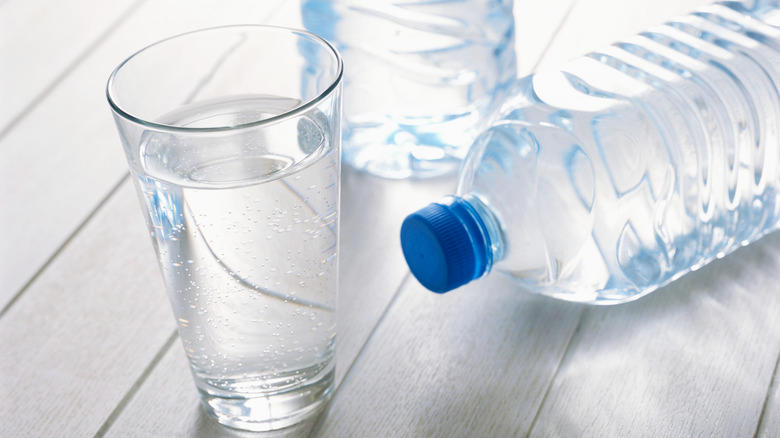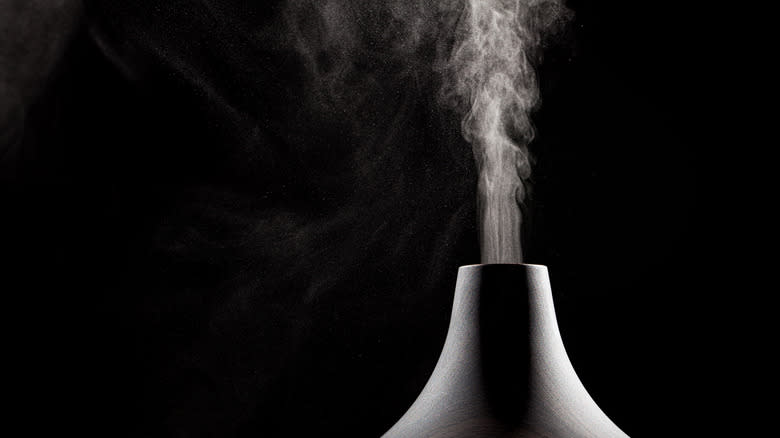Why You Shouldn't Drink Too Much Distilled Water

When buying bottled water from the grocery store, there are generally three major options: spring water, purified water, and distilled water. Because spring water comes directly from an underground water source, it is often only minimally treated, while purification employs techniques like coagulation, sedimentation, filtration, and disinfection to remove unwanted debris, chemicals, and microorganisms. Where does your bottled water come from, exactly? Usually purified tap water. Distilled water, on the other hand, is boiled, and the steam collected from the process is transformed back into pure water. While your instinct may tell you to reach for the purest of the bunch when you're thirsty, drinking too much distilled water may actually become detrimental to your health.
The process of boiling water and collecting its steam works to remove solids and kills bacteria, viruses, and pathogens, resulting in a liquid so clean it is often used in operating rooms. However, distillation doesn't just get rid of the bad stuff in water, it wipes out all the good stuff, too. Water is chock full of naturally occurring minerals -- calcium, magnesium, potassium, fluoride, and iron -- that your body depends on for healthy functioning. However, when water is diffused, it becomes totally devoid of anything but oxygen and hydrogen (which is also the reason you shouldn't used distilled water in your Keurig). As such, drinking too much of it can lead to nutrient deficiencies.
Read more: Bottled Water Brands, Ranked Worst To Best
A Little Bit Of Give And Take

Because spring water isn't heavily treated, many of its essential minerals remain intact. This means that when you drink tap water every day -- or spring water -- it works to supply you with a constant stream of the minerals your body needs. When you sweat and urinate, your body loses many of the micronutrients found in water. If you are only drinking distilled water, it won't effectively replenish what you've lost. This can lead to an electrolyte imbalance, which can cause dehydration, fatigue, headaches, and muscle cramps. Drinking water without calcium and magnesium can be especially detrimental to infants, children, and pregnant people, as more is required for bone health in these instances.
Of course, that isn't to say you can't drink distilled water. While some say the purification process leaves the water with a flat taste, in some cases, like for those with compromised immune function, distilled water can be a great option as it is free from impurities. Others believe it can work to detoxify the body. In order to incorporate distilled water into your diet without issue, it is essential that you maintain a balanced diet to ensure you're getting your essential minerals elsewhere.
Read the original article on Mashed


